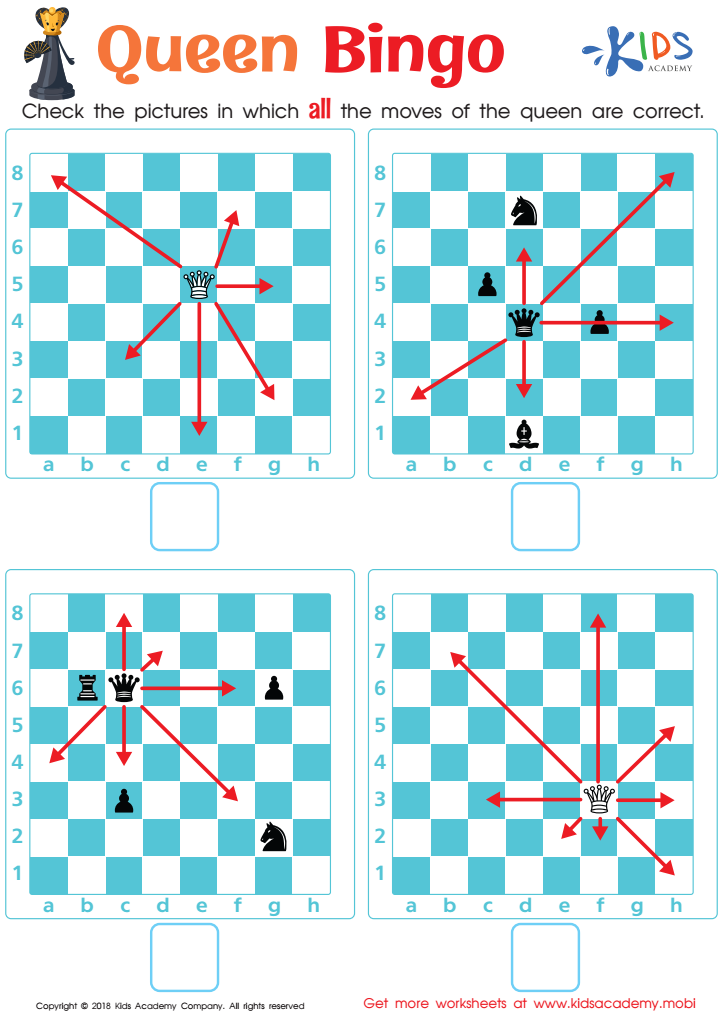Sound association ("Q" sound) Worksheets for Kids
1 filtered results
-
From - To


Queen Bingo Worksheet
Question/Answer
How to test a Grade 1 student’s Sound association ("Q" sound) skills?
To test a Grade 1 student's "Q" sound association skills, provide a set of images or words, both related and unrelated to the "Q" sound (e.g., queen, quilt, cat, dog). Ask the student to identify which items are associated with the "Q" sound. This method assesses their ability to recognize and associate the "Q" sound with corresponding objects or words.
What does the Sound association ("Q" sound) skill mean when it comes to Grade 1 Chess learning?
The Sound association ("Q" sound) skill in Grade 1 Chess learning likely refers to teaching students to associate the "Q" sound with the queen piece on the chessboard.
How does the mastery of the Sound association ("Q" sound) skill affect a student's performance at an early age?
Mastery of the Sound association for the "Q" sound at an early age significantly enhances a student's phonemic awareness, reading, and spelling skills. This foundational literacy skill allows children to correctly recognize and produce the "Q" sound, facilitating the decoding and encoding of words. Consequently, it promotes better reading fluency and comprehension, crucial for academic success in subsequent years.












